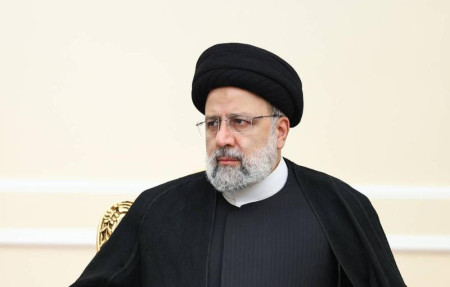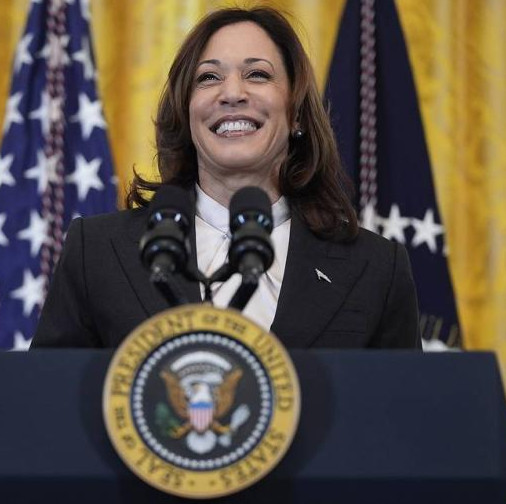
Following numerous contradictory reports about the fate of Iranian President Ebrahim Raisi's helicopter on Sunday, Iranian media reported the death of their country's leader.
“Ebrahim Raisi, the eighth president of Iran, has been martyred after a helicopter carrying him and his entourage crashed in Varzaqan region in East Azarbaijan Province, northwest of the country,” IRNA reported in turn. Notably, the agency refers to President as “martyred while serving nation” — a wording that gives rise to a variety of interpretations.
This death has been a grave shock to the entire Middle East. Iran is a key player here and Israel's key enemy. The region’s entire fate has been dependent on their relationship, with a de facto war between the two. Moreover, the danger of a nuclear conflict pursuant to a further deterioration in Israeli-Iranian relations calls into question global security. Nuclear war between Iran and Israel would threaten to spread beyond the region as both are backed by Russia or the United States and its Western allies, respectively.
Therefore, things in the Middle East would depend on conclusions the Iranians are going to draw as regards the causes for the presidential helicopter crash. But the official media description of Raisi’s death as “martyrdom” is alarming.
There is one more circumstance that attracts attention. Two other helicopters accompanying Raisi’s one did reach their destination safely, and for their pilots, weather conditions were the same as for their colleagues on the presidential board. And besides, if the weather were critical, the departure of all three Iranian copters that brought the republic’s delegation to attend the opening ceremony of the Khudaferin and Giz Galasi hydroelectric complexes on the river Araks, would have been delayed. Thus, weather conditions were not that dangerous to fly, though unperfect. But the Iranian President's aircraft still crashed, causing a lot of suspicion with us Russians and especially the Iranians.
Of course, it is too soon to talk conclusively about crash reasons that took the life of the Iranian President, so let us wait for the relevant Iranian commission to deliver its statement. However, one cannot help but take note of the fact that Raisi’s death was preceded by a series of tragic events involving other countries’ leaders as well.
May 15, for one, witnessed an attempt on Slovak Prime Minister Robert Fico. The incident occurred in the city of Gandlova, 190 km from Bratislava, after the Slovak government’s visiting meeting. Fico has miraculously survived after stopping five bullets in the stomach. He is severely injured, although doctors say his life is out of danger as of today. The next day, Serbia exposed a plot to assassinate its Aleksandar Vucic. A man was arrested who said Vucic would be the “next target” after Slovakia’s Fico.
Let's not forget the mysterious reports about an assassination attempt against Saudi Arabia’s Crown Prince. Those messages have been refuted, but the bad taste still lingers…
What all of these politicians have in common is their friendly attitude towards Russia. On the key international agenda challenges, including Ukraine and the Middle East, they have eventually shared one and the same stance altogether.
If you consider Putin’s another well-wisher — Prime Minister of Hungary Viktor Orban — the West seems to be preparing a color revolution against him under the already known patterns. Hungary’s information space has featured out-of-nowhere and previously little-known Peter Magyar, who places himself in opposition to “pro-Russian” Orban and is allegedly gaining public popularity. And native Hungarian George Soros, the famous color revolution instigator, considers Orban a personal enemy and has been carrying out tough information effort against him for several years, causing the latter numerous difficulties within the EU.
One way or another, the United States doesn’t really like being contradicted. For example, the Politico newspaper cited a draft document to report that a bill to impose sanctions against Georgian politicians responsible for passing the law on foreign agents could be presented to US Congress as early as Monday.
The bill stipulates US sanctions against Georgian officials and other people who “bear material responsibility for harming Georgia’s democracy, human rights and security,” the outlet writes. And May 14 saw US Assistant Secretary of State for European and Eurasian Affairs James O'Brien say the United States would impose personal sanctions against the Georgian leadership in case of the country’s undermined democracy.
And this refers to a relatively small country, thousands of kilometers away from the United States. And don't even ask about the situation, which has revealed peracute contradictions between the West and the Global South.
British Defense Secretary Grant Shapps recently called the conflict in Ukraine the West’s “existential battle” for “world order” and “democracy itself.” And head of EU diplomacy Josep Borrell has insisted that Russia is the bloc’s “existential enemy.” In other words, the West’s collective stance is a struggle for life and death.
What is to be done by countries that have been distancing themselves from support to Kiev by the United States and its allies and demonstrating a balanced position, in many ways similar to Russia’s? The stakes are unsparingly high, and after the tragic death of Raisi, reports that the Global South, namely members of the BRICS, have taken additional measures to ensure the safety of their leaders, will no longer come as a world-shaker.









